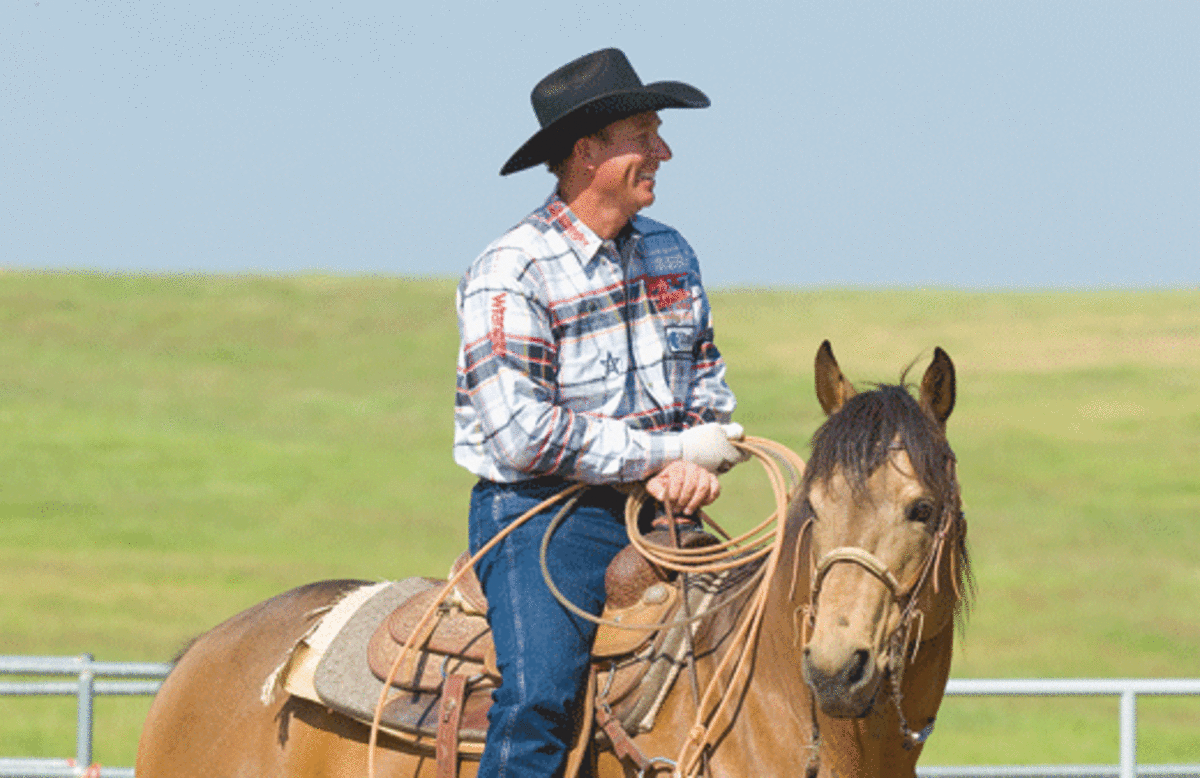In the past, I’ve really worked on the physical part of my roping. I’ve practiced hard to always try to take it up a notch. I’m really trying to work on my horsemanship these days, and trying to get my horses broke better. I’ve had the opportunity to ride broke horses, that were broke by professionals, and those horses are so much more balanced. They’re just such a pleasure to ride. When horses aren’t responsive to the fundamentals, it’s such a fight. I’m trying to learn more about horsemanship all the time, so I can do some of the subtle things that really help my horse.

I’m putting more emphasis on spending time with my horses these days. I’m riding them more, aside from just running steers on them, and teaching them manners. The better horseman you are and the more of those skills you develop, the more responsive your horse will be, and the more willing he’ll be to help you succeed.

Trying to get your way with a horse using brute strength is not the answer, and it’s no fun for either of you. Your horse is part of the team, too. He’s your other partner. So it’s in your best interest to work together and understand each other.
Roping too many steers on one horse causes a lot of battles. I’m working on being more patient; on scoring more and roping less. I try not to rope more than five or six steers in a row on a horse. You can practice on a horse all day long if you just run a few, then let him have a good break to rest and relax. Making 10 or 15 runs in a row on a horse is too much for one physically and mentally.

The hardest part of roping for anybody is keeping good horses. You might have one good one at a time, but even that’s tough. Even if you have the money, where is that awesome horse? Finding the great ones is not easy. I’ve always bought the horses I’ve made a living on. I have a couple prospect type horses now that I’m working with and trying to make something of.

You need two or three really good horses, so you don’t burn one good one out. When you’re going for big money, you want to be on your very best horse. But if you only have one good one, and you’re too hard on him, he’s not going to last. Speed Williams is a good example of having multiple horses all the time. He searches for good ones, and he buys them. He’s got everybody out-mounted. That’s a huge advantage, and it’s good management. You have to keep reinvesting to stay on top.

Whatever your situation, whether you rope for a living or not, the mark you’re after is to end up with an awesome horse. Your circumstances and budget will dictate how you get there; whether you can buy one that’s made, you have to make your own or have one made by someone with the time and experience to do it. And once you get a good one you need to be able to maintain him and keep him good. It’s a pain for us to haul extra horses around to get them seasoned and used to the crowds, but it’s just one of those things that must be done.










